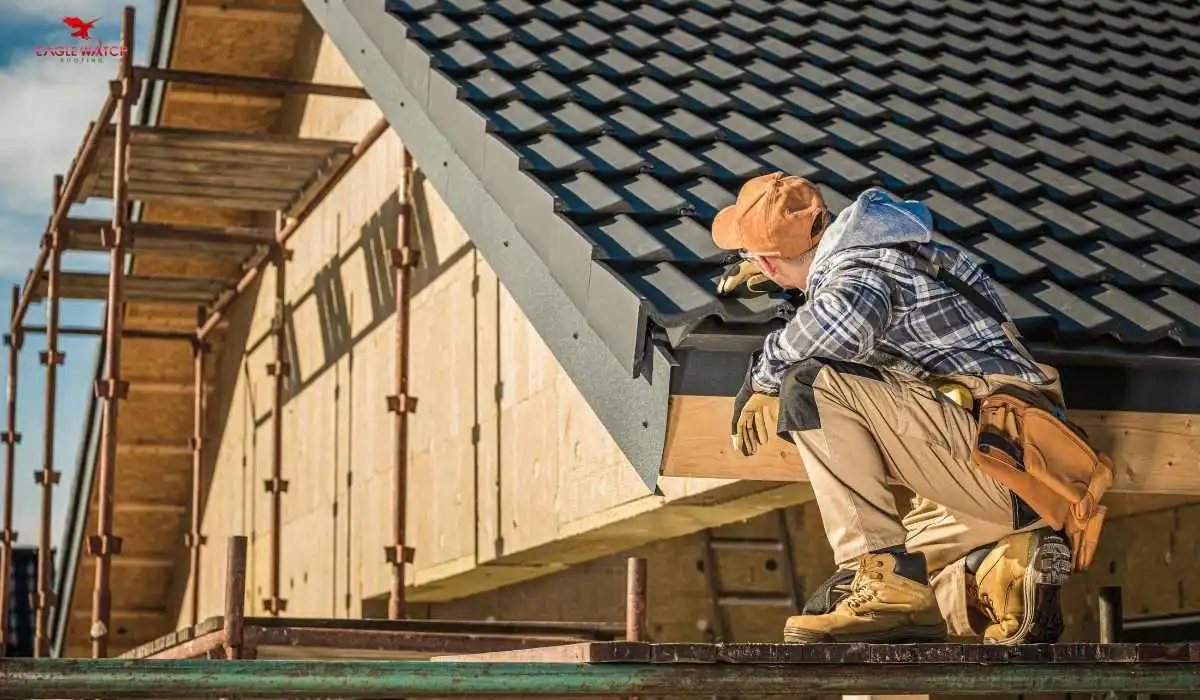How Roofing Contractors Help Homeowners with Insurance Claims
Dealing with insurance claims on roofs can be overwhelming for homeowners, especially after severe weather damages their property.
Navigating insurance policies, inspections, and claim approvals can be complicated, making it essential to have expert guidance.
This is where professional roofing contractors play a vital role.
They not only repair and replace roofs but also help homeowners handle the insurance claim process efficiently.
In this comprehensive guide, we’ll explore how roofing contractors assist homeowners with roof insurance claims, ensuring they receive the coverage they deserve without unnecessary stress.
Understanding Insurance Claims on Roofs
When a roof sustains damage from storms, hail, wind, or other unexpected events, homeowners may file an insurance claim to cover the cost of repairs or replacement.
However, coverage depends on the insurance policy, and not all types of damage are eligible.
Understanding policy terms and requirements is crucial for a successful claim.
Roofing contractors play a key role by assessing damage, documenting evidence, and ensuring proper claim submission to maximize coverage.
Common Reasons for Filing a Roof Insurance Claim
- Storm Damage – High winds, heavy rain, and hailstorms can weaken roofing structures.
- Hail Damage – Even small hailstones can cause cracks, dents, and granule loss on shingles.
- Falling Debris – Trees, branches, or airborne debris during storms can puncture or damage roofs.
- Water Damage – Leaks caused by weather-related wear can lead to mold, rot, and structural issues.
- Fire Damage – Fires from lightning strikes or accidental ignition can cause severe roof destruction.
Working with an experienced roofing contractor helps homeowners navigate the claims process, ensuring their roof insurance claim is handled efficiently and fairly by the insurance company.
How Roofing Contractors Assist in the Insurance Claim Process
1. Conducting a Thorough Roof Inspection
Before filing an insurance claim, it’s crucial to assess the roof’s condition.
Roofing contractors provide free roof inspections, identifying damage that may not be visible to an untrained eye.
They document all affected areas with photos, videos, and detailed reports, which strengthen the homeowner’s claim.
2. Assessing Insurance Coverage Eligibility
Many homeowners struggle to understand their insurance policies.
A roofing contractor can review the policy, determine the type of coverage available, and advise homeowners on whether filing a claim is the best course of action.
3. Assisting with Claim Documentation
Insurance companies require solid documentation to approve claims. Roofing contractors help by:
- Compiling evidence of damage (photos and videos)
- Writing detailed reports outlining the necessary repairs
- Estimating repair costs based on industry standards
- Communicating directly with insurance adjusters
This professional documentation increases the likelihood of a claim being approved quickly and fairly.
4. Meeting with Insurance Adjusters
Insurance adjusters inspect the roof to evaluate the extent of the damage.
Homeowners often lack the technical knowledge to challenge lowball estimates or incorrect assessments.
A roofing contractor acts as an advocate, ensuring the adjuster doesn’t overlook critical damages that require coverage.
5. Providing Accurate Repair Estimates
Insurance companies may attempt to undervalue repair costs.
Roofing contractors provide fair, market-accurate estimates, ensuring homeowners receive sufficient funds to cover necessary repairs or roof replacements.
6. Preventing Claim Denials
Many insurance claims get denied due to:
- Insufficient documentation
- Delayed reporting of damages
- Improper claim filing
- Lack of expert evaluation
A licensed roofing contractor ensures everything is properly handled to avoid rejections and delays in claim approval.
7. Handling Emergency Repairs
If a roof is severely damaged, immediate temporary repairs are often required.
Roofing contractors provide emergency tarping services to prevent further deterioration while waiting for the insurance claim to process.
Some contractors even work with insurance providers to ensure these temporary repairs are covered.
How Homeowners Can Maximize Their Roof Insurance Claim

Homeowners can take proactive steps to ensure they receive the maximum coverage from their roof insurance claim.
Proper preparation and quick action can make the difference between a smooth approval and a denied claim.
- Regular Roof Inspections: Scheduling annual roof inspections helps identify minor issues before they escalate. Keeping inspection records provides proof that the damage wasn’t due to neglect, which is essential for insurance approval.
- Documenting Damage Immediately: After a storm or any severe weather event, homeowners should take clear photos and videos of the damage before attempting any repairs. This evidence strengthens the insurance claim and prevents disputes over the cause and extent of the damage.
- Acting Quickly: Insurance policies have strict time limits for filing claims—often within 6 to 12 months of the damage occurring. Delays in reporting can lead to claim denials, so homeowners should contact their insurance provider and a roofing contractor as soon as damage is detected.
- Working with a Licensed Roofing Contractor: Insurance companies may suggest preferred contractors, but homeowners have the right to choose their own. Hiring an experienced, reputable roofing contractor ensures that the claim is filed correctly, all damage is accounted for, and repairs meet high industry standards.
By following these steps, homeowners can maximize their roof insurance claim and ensure they receive the compensation needed for proper repairs or replacements.
Expert Insurance Claim Assistance with Eagle Watch Roofing
If you need professional guidance with insurance claims on roofs, Eagle Watch Roofing is here to help.
With years of experience handling roof insurance claims, we work directly with homeowners and insurance providers to ensure a smooth, stress-free process.
Our team understands insurance policies, claim procedures, and what it takes to get the compensation you deserve.
Why Choose Eagle Watch Roofing?
- Free Roof Inspections – We conduct thorough inspections and document all damages with photos and reports.
- Insurance Claim Assistance – Our experts help file claims, negotiate with adjusters, and maximize payouts.
- Emergency Roofing Services – We provide immediate temporary repairs, such as tarping, to prevent further damage.
- High-Quality Repairs & Replacements – Whether it’s minor repairs or a full replacement, we ensure top-notch craftsmanship.
At Eagle Watch Roofing, we prioritize homeowners’ best interests, making sure their claims are handled fairly and efficiently.
Our team takes care of the entire process—from initial inspection to final repair—so you can have peace of mind knowing your roof is in expert hands.
For professional insurance claim assistance, contact Eagle Watch Roofing today. Let us help you restore your home with quality roofing solutions.
Final Thoughts
Navigating roof insurance claims can be challenging, but hiring a professional roofing contractor makes the process smoother and more successful.
From conducting inspections and documenting damage to negotiating with insurance companies and completing high-quality repairs, a trusted roofing contractor ensures homeowners get the coverage they deserve.
If your roof has suffered storm damage, don’t hesitate to contact Eagle Watch Roofing for expert assistance in handling your roof insurance claim.
FAQs
How do I know if my roof damage qualifies for an insurance claim?
If your roof has damage from storms, hail, wind, fire, or falling debris, you may qualify for a claim. A roofing contractor can inspect and document the damage to determine eligibility. If the damage is due to wear and tear, it may not be covered. Always check your policy for specific coverage details.
Will my insurance cover the full cost of roof replacement?
Coverage depends on your policy and the extent of the damage. Some policies cover full replacements if the damage is from a covered event, while others pay based on depreciation. Reviewing your insurance terms and working with a roofing contractor can clarify your coverage. Filing a well-documented claim improves your chances of full coverage.
What should I do if my insurance company denies my claim?
First, ask for a written explanation of the denial. You can request a second inspection, provide additional documentation, or hire a public adjuster to review the case. A professional roofing contractor can help gather evidence to strengthen your appeal. If needed, you may also seek legal assistance for dispute resolution.
How long does the roof insurance claim process take?
The timeline varies, but claims typically take a few weeks to a few months. The speed depends on the complexity of the damage, insurance provider response time, and claim documentation quality. Prompt inspections and complete paperwork help speed up approval. Working with a roofing contractor can ensure a smooth process.
Can I hire my own roofing contractor, or do I have to use one recommended by my insurance company?
Yes, you can hire your own contractor. Insurance companies may suggest preferred vendors, but homeowners have the right to choose a licensed and experienced roofing contractor. Hiring your own ensures your best interests are prioritized. A reputable contractor will document all damage and negotiate with the insurer on your behalf.
What if my insurance payout isn’t enough to cover the full cost of repairs?
If your insurance payout is lower than expected, review the estimate and compare it with your contractor’s assessment. You can request a supplemental claim if additional damages are found. A roofing contractor can help negotiate with the insurer to ensure all necessary repairs are covered. If needed, consider financing options to cover any remaining costs.
Can I file a roof insurance claim for an older roof?
Yes, but coverage depends on your policy and the roof’s age. Some insurance companies only cover partial costs or depreciated value for older roofs, while others may exclude coverage if the roof is beyond its expected lifespan. A roofing contractor can inspect the damage and help determine if filing a roof insurance claim is worthwhile.


